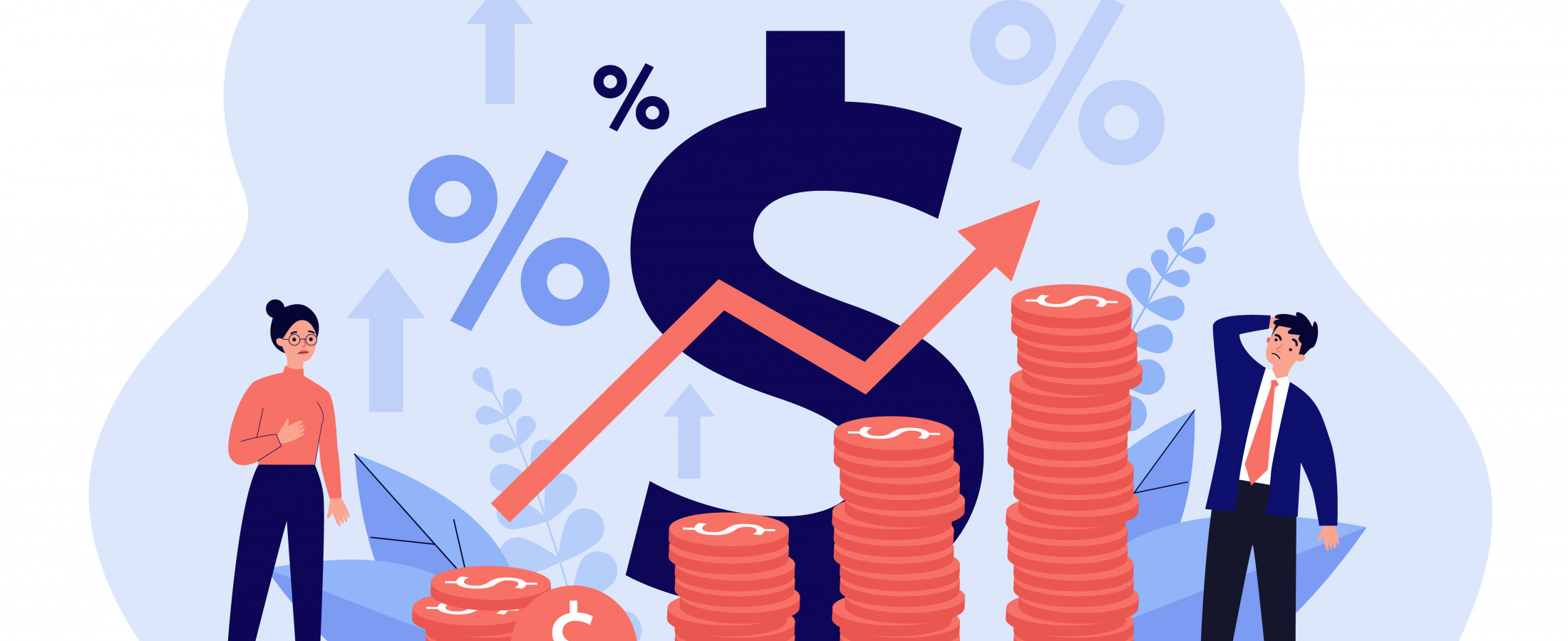
How does inflation impact my finances?
The U.S. is currently experiencing the highest inflation levels since 1990, with a 6.2% spike in prices for consumer goods. But how does inflation affect the individual? It’s not all negative, and it’s not as permanent as you might think.
- Inflation is an increase in consumer prices and is natural for a healthy economy.
- Inflation affects everyone differently, depending on factors like age, income/employment status, and family size, so your experience of the current wave of price increases will be unique to you.
- Understanding the causes of inflation can help individuals plan and determine how to shift their expenditures to weather the current economic reality.
What causes inflation?
Following the COVID-19 shutdown and the reopening of the economy, Americans have been spending like crazy, driving up the demand for goods. Why are people spending so much money?
- A return to normal: Many are simply happy to return to normal, as people are going back to work and gaining income to spend.
- Going out again: Sick of being stuck at home wearing sweatpants, some are ready to go out, and are buying clothing, shoes, and accessories.
- Sticking around the house: Others are stocking up on items for their homes, recognizing how much time we continue to spend there.
- Built-up savings: During the pandemic, those who were able to keep their jobs may have been able to store up savings due to decreased spending on things like going out to restaurants, traveling, and attending events outside of their homes.
While increased spending is a sign of a healthy economy, it can have harmful effects when the economy isn’t prepared to be inundated by this demand, causing supply chain back-up. People all over the world are being affected by supply chain woes, with goods selling out faster and shipping times increasing globally.
- Supply and demand: Limited goods mean higher prices, which reduces the value of the dollar. Fewer workers mean companies can’t meet consumer demand.
- Reduced dollar value: While some employers have increased employee pay to try to attract new talent, prices often rise faster than paychecks, meaning that incomes may not align with general consumer prices.
Negative effects of inflation
While inflation can have some beneficial effects on the average consumer, the phenomenon can be difficult to navigate in the short-term. Here are some ways that inflation can affect you:
1. The price of consumer goods goes up
The average American will probably see the most direct impact of inflation at the grocery store, where the cost of consumer goods like food is steadily rising. Consumers may want to reevaluate what products they really need or what brands they value, buying store-brand or bulk to save money. Car rentals, used cars, airfare, and furniture are seeing particularly high price spikes. Used car prices are almost 30% more this year compared with last year, according to CNBC. Clothing, remodeling supplies, gas, and hotels are also seeing a steep rise in price due to increased demand.
2. You may pay more for rent
After a drop in housing prices during the pandemic, the housing market is back with a vengeance, with both home prices and rentals seeing sharp increases. This change may affect you differently depending on your age, as younger people are more likely to be renters. The rental market has skyrocketed this year, and people are putting higher percentages of their income toward their monthly payments. Older generations, who make up many homeowners, may not be as affected by rising prices if they’re staying put.
Positive effects of inflation
While higher prices may not sound like a good thing, some positive effects do come from rapid inflation spikes. However, keep in mind that they may require you to think outside the box.
1. Stock-savvy investors can benefit
Some may see this as a good time to invest, since consumer spending is on the rise and increased demand raises prices. Assets like real estate, food, clothing, and utilities may be smart choices for the inflation investor.
2. Negotiating a higher wage may be easier
The worker shortage in the country has some employers paying employees more to retain skilled workers, but that also plays a role in perpetuating inflation. Higher-earning workers spend more money, straining an already struggling economy.
3. Unemployment goes down
Some data points to an inverse relationship between inflation and unemployment, suggesting that when demand for goods and services is high, employers need to hire more workers to keep up, making this a good time to be in the job market.
What’s next?
Most economists and financial advisers counsel individuals not to make any rash decisions or major lifestyle changes during times of inflation since inflation is usually tied to circumstantial factors and can shift quickly.
While spending money and investing can be a sound decision, it’s always good advice to save money for an emergency—because the only thing certain about the economy is that it never stays the same for long.
The information in this article was obtained from various sources not associated with Adirondack Bank. While we believe it to be reliable and accurate, we do not warrant the accuracy or reliability of the information. Adirondack Bank is not responsible for, and does not endorse or approve, either implicitly or explicitly, the information provided or the content of any third-party sites that might be hyperlinked from this page. The information is not intended to replace manuals, instructions or information provided by a manufacturer or the advice of a qualified professional, or to affect coverage under any applicable insurance policy. These suggestions are not a complete list of every loss control measure. Adirondack Bank makes no guarantees of results from use of this information.
Article written by EVERFI

